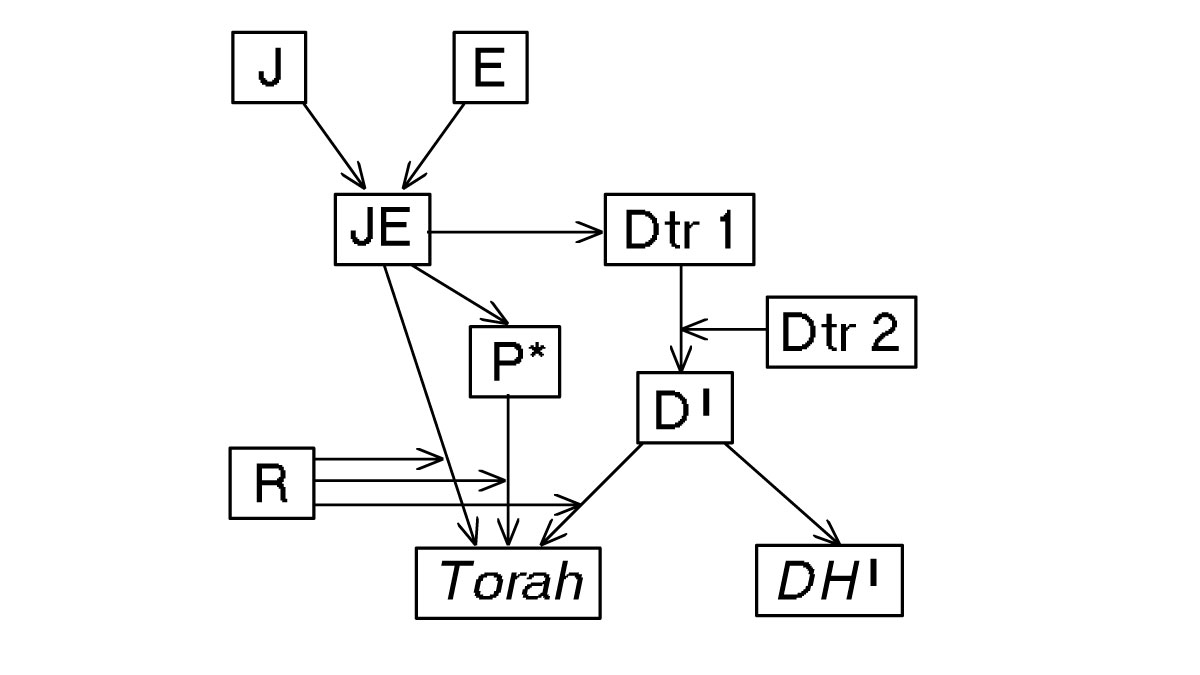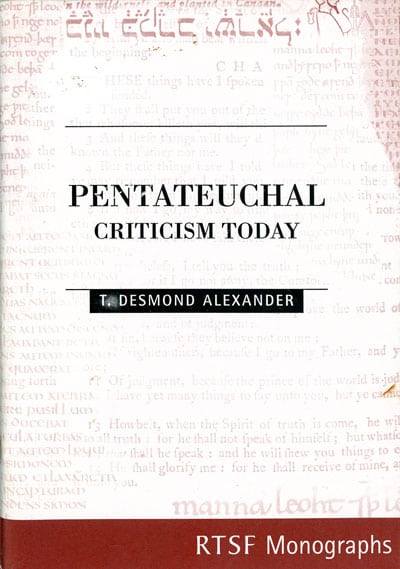Pentateuchal Criticism Today
Today’s free book is a very useful introduction to the documentary hypothesis by T. Desmond Alexander of Union Theological College, Belfast. This in-copyright title has been uploaded by kind permission of the author and is free to use for educational purposes.
T. Desmond Alexander, Pentateuchal Criticism Today: A Guidebook for Beginners. RTSF Monographs. Leicester: Religious and Theological Students Fellowship, 1998. ISBN: 01870137264. Pbk. pp.83. [Click here to visit the download page for this title]
Table of Contents
- Introduction
- The Rise of the Documentary Hypothesis
- The Older Documentary Hypothesis
- The Fragmentary Hypothesis
- The Supplementary Hypothesis
- The New Documentary Hypothesis
- The Documentary Hypothesis of Graf, Kuenen and Wellhausen
- Models for explaining the composition of the Pentateuch
- Distinctive vocabulary
- The divine names in Genesis
- Doublets
- Implications for the history of Israelite religion
- Conclusion
- Going behind the documents
- Form-criticism
- Traditio-historical criticism
- The limitations of traditio-historical criticism illustrated
- The Documentary Hypothesis under threat
- Modifications to the Documentary Hypothesis
- Alternatives to the Documentary Hypothesis
- Conclusion
- Why was the Pentateuch composed?
Main image: Diagram of the 20th century documentary hypothesis. J: Yahwist (10th–9th century BCE)[1][2] E: Elohist (9th century BCE)[1] Dtr1: early (7th century BCE) Deuteronomist historian Dtr2: later (6th century BCE) Deuteronomist historian P*: Priestly (6th–5th century BCE)[3][2] D†: Deuteronomist R: redactor DH: Deuteronomistic history (books of Joshua, Judges, Samuel, Kings). By dnik – Own work, CC BY-SA 4.0.


